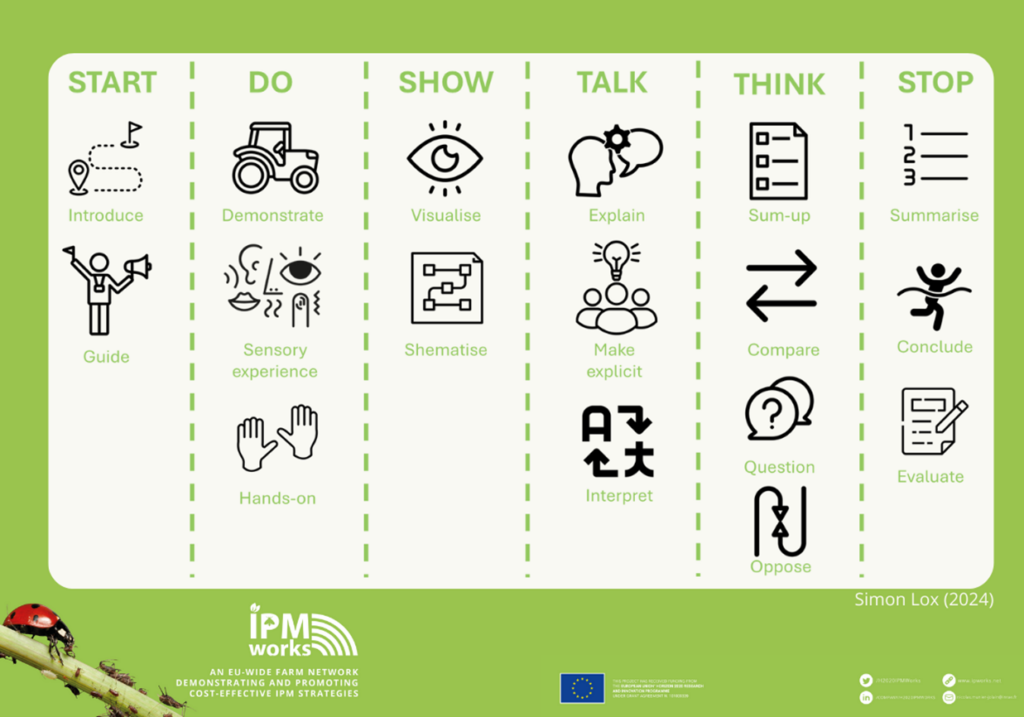The critical role of social skills in
IPM demo hubs and how it can be enhanced

IPMWORKS released a report (Deliverable 1.4: Educational material for social skills in IPM demo) which explains about the way in which social skills enhance interactive processes in demo hubs, and illustrates in a variety of ways in which they can be applied in demo hubs.
IPMWORKS applies an approach to integrated pest management that focuses on the utilization of demonstration hubs as a core strategy for the widespread application of Integrated Pest Management (IPM) practices, more specifically the holistic approach to IPM that IPMWORKS proposes.
Social skills (of advisors/hub coaches, but not only of them) are of critical importance in such demonstration hubs. This is relevant for farmer demonstration hubs/networks in general as well as for those focusing specifically on IPM because the tendency is to focus on content (technical) expertise, paying less attention to the critical role of social interaction processes, including peer-to-peer learning and exchange. Research on and experiences of farmer networks have pointed to the fact that good social relationships and interactions are crucial in creating a fertile soil for learning and innovation in such groups.
The demonstration hub approach applied by IPMWORKS integrates hands-on learning experiences with peer-to-peer knowledge exchange. These hubs serve as dynamic platforms where farmers, advisors, and other agricultural stakeholders can directly observe and learn about effective IPM practices in real-world settings.
The report is meant to support the training of advisors/hub coaches. It is also important for those supporting and funding these initiatives to understand the role of the social side of demo hubs and how social skills make a big difference in navigating related interactive processes so that they consider the need for appropriate investments in it. Following up on guidance provided in this report will help enhancing individual social competencies, building collective capabilities through facilitation, and creating an enabling learning environment
Overall, the IPMWORKS approach illustrates the value of a coherent strategy that not only addresses the technical aspects of pest management but also deeply integrates the social skills and community dynamics essential for sustainable farming. This comprehensive approach ensures that IPM practices are not only about managing pests efficiently but also about building resilient farming communities capable of adapting to new challenges and innovations in agriculture.